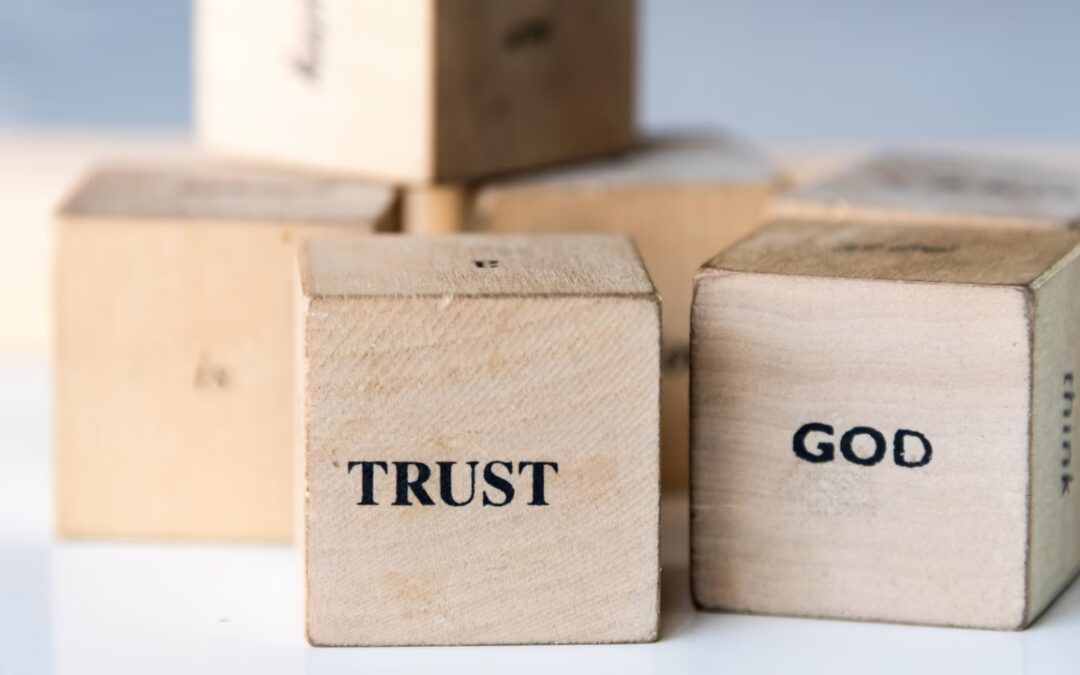“I love Jesus, but I want to die.” Those sobering words from Sarah J. Robinson were uttered in the darkness of a depression that felt unending. Yet even in the pain, there was hope waiting to be found. In her latest book (I Love Jesus, But I Want to Die), Sarah takes an honest look at the way Christians deal with depression. We spent some time with Sarah to discuss how teenagers can navigate issues of mental illness and how the love of God can guide us through life’s dark waters.
There is a lot of focus today on mental health, but it’s not always easy to admit we need help. What are some signs that we need help?
Anytime your mental health issues are interfering with your life, you need to take a hard look at what kind of support and help you can get. If you are suddenly tired all the time and can’t get out of bed, you don’t have any motivation to do schoolwork, you’re having a lot of anxiety or fear, it’s overwhelming to be around people, and of course, if you’re having any thoughts of wanting to harm yourself in anyway—whether that’s cutting, not eating enough or eating too much, or thoughts of suicide—those are big signs that you need professional help or support.
When we see a friend struggling with depression, we often feel helpless. What can we say that might provide some encouragement and hope?
You want to make that person feel safe, loved, and hopeful. You can say, “I may not have all the answers, but there’s good help available and I can help you find it. But no matter what, I want you to know I’m glad you told me. You matter so much to me, and I’m going to walk with you as you figure out what it takes to help you feel better.”
The goal is for us to demonstrate the love of Christ. The love of Christ is never shaming, it’s never demeaning, and it will never belittle somebody for a legitimate struggle and pain that they’re experiencing. My hope is that someday we can talk about these things the same way we would talk about going to the dentist or getting a sprained ankle checked out. We should acknowledge that depression and anxiety are legitimate illnesses that have a physiological basis in our bodies, and God has given us really good resources in the form of doctors and therapists who can help us get better.
There’s a myth out there that Christians shouldn’t struggle with anxiety and depression, and they shouldn’t seek outside help. Did you ever battle that mindset?
I had this idea of what a good Christian should be, and it wasn’t what I was. It wasn’t my inability to snap out of this depression and turn off the anxiety, to be the joyful Christian I thought I should be and some people around me in my faith community told me I should be. [However, things changed when] I confessed I was struggling with self-harm and I was suicidal and some people looked at me and said, “We’re not disappointed in you. We still love you. God still loves you. We’re going to walk with you toward hope and healing.” I began to see that if a person is not disappointed in me, then maybe God is not disappointed in me either. And maybe I shouldn’t be ashamed of this struggle; maybe God wants me to get help. I think other people also wrestle with that shame that told me it wasn’t okay to seek help and it wasn’t okay to struggle.
Unfortunately, many teenagers turn to self-harm when their emotional pain gets unbearable. In your book you mentioned that this was a struggle for you too. Why do some turn to self-harm when depression and anxiety strike?
Self-harm is a coping mechanism that people use to deal with overwhelming emotions. For me, that was always shame. Just like when you fall down and hurt your knee, your body releases endorphins to help you cope with the pain. There is a physical response that often happens—a little bit of a high or numbing sensation or release for many people when they self-harm. But it’s a negative cycle and negative way to cope so it is not helpful in the long-term.
The same overwhelming emotions that drive you to try to cope by hurting yourself can also drive people to feel there is no hope for a better future and to consider or attempt suicide. But just because somebody is self-harming, cutting, or hurting themselves in other ways does not mean they are suicidal. They may actually be using that as a way to cope so they can stay alive. But it is a sign of something very serious and they definitely need help.
Setting boundaries isn’t something we normally think about, but you’ve suggested they are important and even necessary. Why are they so needed?
As I was always saying yes to everything, being involved in all these ministries and never resting, I was actually saying no to taking care of myself. God has entrusted each of us with our lives as a gift. I like to think about it like a garden. Just like God gave Adam and Eve this beautiful garden to steward and take care of, each of us has a garden and it’s our life. Good boundaries are like fences around our garden. If you have a garden and you don’t have a fence around it, the deer and the rabbits will come and eat all your vegetables. Or somebody might not realize it’s there, and they’ll trample all over it. But if you have boundaries in place, you can protect the good things God wants to grow in your life, and you’ll have so much more to give. If everything is getting eaten up, trampled, and destroyed, you don’t have anything to give. Learning to set boundaries, say no, and take breaks really allowed me to love and care for people without resentment and without guilt and with a lot more freedom like God had intended.
Was it difficult for you to accept that depression might be a lifelong struggle and not simply an illness that would eventually disappear for good?
I came to a point where I acknowledged I was living with depression, and it was a legitimate issue, but I still believed I had to get over it someday. If I was going to be a good Christian, I would have to overcome it, because that’s what Christians do. But there are many times throughout Scripture where people didn’t really overcome things or people weren’t healed. Paul experienced a hardship he dealt with for a long time called his “thorn in the flesh.” We don’t know what it was, but we know he asked God at least three times for it to be taken away, and God said, “No. Instead of taking it away from you, I’m going to walk with you in it. My grace is sufficient for you.” I began to realize God will still love me and I will still be just as good of a Christian if I deal with this for the rest of my life. I began to experience this freedom where I could shift my focus from trying so hard to beat it and fix it and pretend it wasn’t there, to considering what does it mean to live well for the long term with a chronic mental illness? What does it mean to take care of myself? What does it mean to love God, walk with Him, and depend on Him, even as I need to be really intentional to set myself up for success? There’s a lot of freedom in that. I know God will be with me no matter what. I know that Psalm 139 says even if I make my bed in Hell, He’ll be there with me. I don’t have to worry that He’s going to bail on me or abandon me.
If a friend secretly tells us about a mental health struggle that could be harmful or dangerous, we might feel conflicted in deciding if we should tell someone else or respect our friend’s privacy. How can we know what to do?
That is such a hard thing to navigate. It feels like a betrayal if somebody has asked you to keep something a secret. But at the same time, it matters more that you help that person stay safe and get healthy. If their parents are aware and they are getting counseling, then walk with them in that. But if they say, “I’ve been cutting and nobody knows,” or “I wish I could go to sleep and never wake up,” or “I just want to die,” or anything that indicates it’s serious and they’re really considering hurting themselves, it’s really, really important that you help them get that help.
You don’t have to go behind their back and go tell their parents. A better way to handle it might be to say, “I want to help you get the support you need. Can I go with you to talk with your parents? Can I go to see the school counselor with you? Can we call the suicide prevention hotline together?” You’re coming alongside your friend and partnering with them. You might be exactly what they need to get some courage to get the help they might have been afraid to reach out for. Worst case scenario: If they say, “No, I can’t talk to anybody. I’m not willing to do that,” and you think somebody is in danger, you should go get help. If you know their parents and know they are safe people, go to them or a teacher or school counselor and try to get help.
Whether it’s a teen reading this who is struggling with their mental health or someone they love is deep in their battle, what message of encouragement and hope can you leave with us?
When I was a teenager planning my first suicide attempt, in such despair and so much pain I thought I couldn’t possibly keep breathing, I didn’t realize how many beautiful things there were ahead in my life. I could not have imagined what it would be like to be an aunt to my nieces and nephews and how fun that would be, or the opportunities I would have to travel, or the friends I would have who would make me laugh until I cried. So much good and beautiful and surprising stuff is ahead for you. I wish I had known about it. It would not have taken away the pain, it wouldn’t have made the depression suddenly go away, but it would have given me some hope that it was worth fighting.
I want anyone who struggles to know you are not alone. Mental illness is very common. Many other people have gone through this, Christians and non-Christians alike. There is good help available. Sometimes it takes a few tries to find the right help, but you’re not condemned to be hurting forever.
The final thing I want you to walk away with is that you are worth everything it takes to get better. No matter how hard it is, no matter how long it takes, no matter how awkward the conversations are, no matter what it costs to go to the doctor or therapist, you are worth getting better. And that’s what God wants for you. God wants healing, hope, and beautiful things. Even if you deal with an ongoing mental health condition like I do, there’s still so much you can do and experience so that your life can be rich and beautiful despite that. You are worth everything it takes to get better.
About finding the right counselor
Counseling is not just you going into a room and talking and magically getting better, and it’s not you going into a room and this counselor gives you a bunch of advice, you do it, and you get better. It’s a partnership. You need to feel like that therapist is trustworthy, that you can open up to them; you need to feel heard, that they take you seriously. You need to feel like they are working with you and support you, and also that you can be completely, 100% vulnerable and say anything to them.
You can usually tell in three sessions. At first, you might have some jitters; you might be getting to know them. I usually commit to going to at least three sessions unless there are big red flags like if they’re unkind, if they’re not paying attention to me, if they’re talking about other clients and naming names; then obviously don’t go back. Just give yourself a couple of sessions to see if you feel safe and connected with them.
About medication for depression and anxiety
The majority of people who try medication find one that works for them. However it’s not always the first medication you try, and it doesn’t always help right away; it can take several weeks. Sometimes you have unpleasant side effects that mean you either need to add a second medication or try something different. I needed medication to help bring my moods up to a stable-enough level so I could get out of bed, go for a walk, start eating healthy food, and work through some hard stuff in counseling.
It is true that medication doesn’t work for everyone. But for the majority of people, especially if you have more moderate to severe depression, you’re going to get better quicker if you try a combination of different things like medication, counseling, and self-care, versus trying only one of those things. If you have a significant struggle with depression, you need to look at your whole life—how you can take care of yourself physically, emotionally, mentally, and spiritually to make sure you’re setting yourself up for success in the long term.
About prayer and lament
As someone who comes from an evangelical Christian background, my understanding of prayer was something that was always a lot of words, a lot of talking, a lot of declaring Scriptures over myself or asking God for myself and others, a lot emphasis on verses like ask and seek and knock and keep on asking, seeking, and knocking. I found that over time, God had chosen not to answer these prayers for healing and for my depression to go away.
But there’s this really rich history, throughout the history of the church, of a more relational type of prayer. Lament is essentially where we pour out all our anger and frustration and sorrow and hurt feelings to God. There are beautiful stories in the Scripture of people who get super angry with God and God draws near to them. When they’re mad at Him, He’s not angry or frustrated. He doesn’t get angry with them when they are angry with Him. He draws near to Job, and says that even when Job didn’t understand what He was saying, Job had responded rightly.
I had to learn to tell God about my pain, tell God I was angry, tell God I didn’t understand what He was doing. Around the same time, I began to learn of this history of meditation and contemplative prayer. Sometimes we think of it as linked to Eastern religion. But it’s not. It’s being still and focusing on one aspect of God’s character, one Bible verse, one phrase that’s true and beautiful about God. My absolute favorite one is, “You are with me.”
What science is now finding—which is so exciting because this is research is being done by secular scientists—is finding that when we meditate on a kind and compassionate God, we actually change our brains. Our brains are healed and rewired in ways that make us feel safer, that enable us to experience more joy, and may enable us to actually connect with God.
I learned to sit there and be quiet, to repeat over and over to myself, “God you are with me,” and to imagine. What it would be like if I were in sat down in a garden and Jesus came and sat with me? What would He say to me? What kind things would He speak over me? When I began to pray in this more relational way, this very simple and quiet and still way, it healed so much of my relationship with God and gave me hope that He would be with me no matter what.
About self-care in depression and anxiety
Learning self-care was a very hard and long process for me because it was counterintuitive to me. If we’re to love our neighbors as ourselves, we have to find a right and healthy way to do that. It was really easy for me to take care of other people, but that word for love in that passage (Matthew 22:39 and others) is an affectionate love, a benevolent love, love that is always seeking good. Jesus was saying, “You should seek your own welfare and do what’s best for yourself. You should take care of yourself. You should treat yourself as though you matter, because you do matter to Him.” And that’s supposed to be the model that we love other people with.
I had to learn to listen to my thoughts and hear how unkind I was to myself and hear how cruel the things I said in my head were. I would pretend I was eavesdropping on a conversation in my head, and whenever I heard something unkind, I would try to say out loud (if I was by myself), “No, you’re doing the best that you can; you are loved; you matter.” I would speak something hopeful and true and kind to myself, like I would to a child that I love. I would always picture my seven-year-old niece, and I would imagine if she said she was stupid or was a failure or something like that; what would I say to her? And I began to talk to myself like that. That spilled over into really practical things like whether I ate well or got out and saw the sunshine and things like that.
Sarah J. Robinson is an author and speaker who draws from ministry experience, mental health work, and her own lifelong battle with depression to help readers fight for wholeness and cultivate joy. You can read more at sarahjrobinson.com.
*Parts of this interview originally appeared in the Forward and Velocity magazines, part of the D6 EveryDay curriculum. *






